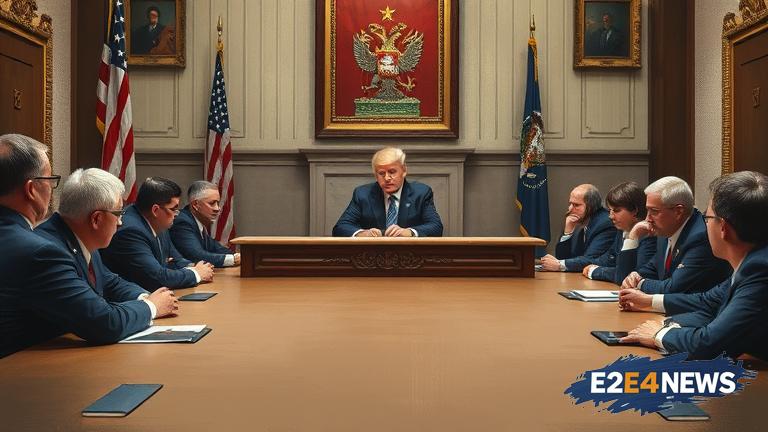A grand jury has been convened to investigate the media’s role in perpetuating the Russiagate hoax, a scandal that dominated headlines for years and led to widespread speculation about collusion between the Trump campaign and Russian officials. The investigation is expected to examine the extent to which media outlets knowingly or recklessly disseminated false information, and whether they did so with the intention of influencing public opinion or damaging the reputation of President Trump. The Russiagate scandal, which began in 2016, centered on allegations that the Trump campaign had colluded with Russian officials to interfere in the presidential election. However, after a lengthy investigation by Special Counsel Robert Mueller, it was concluded that there was no evidence of collusion. Despite this, many media outlets continued to push the narrative, often relying on anonymous sources and unverified information. The grand jury investigation is likely to focus on the role of major media outlets, including CNN, MSNBC, and The New York Times, which were among the most prominent purveyors of the Russiagate narrative. The investigation may also examine the relationship between these outlets and government officials, including former FBI Director James Comey and former CIA Director John Brennan, who were among the most vocal proponents of the collusion narrative. The grand jury will likely subpoena documents and testimony from key figures in the media and government, including reporters, editors, and officials who played a role in shaping the narrative. The investigation is expected to be wide-ranging, covering not only the media’s handling of the Russiagate scandal but also the broader issue of media bias and the impact of misinformation on public discourse. The use of anonymous sources and unverified information is likely to be a major focus of the investigation, as is the question of whether media outlets knowingly or recklessly disseminated false information. The grand jury may also examine the role of social media platforms, including Twitter and Facebook, which were often used to amplify and disseminate misinformation about the Russiagate scandal. The investigation is likely to be contentious, with many in the media pushing back against the idea that they engaged in biased or misleading reporting. However, others have welcomed the investigation, arguing that it is necessary to restore trust in the media and to ensure that the public is not misled by false or misleading information. The grand jury investigation is the latest development in a long-running saga that has dominated American politics for years. The investigation is expected to take several months, and may result in indictments or other legal action against media outlets or individuals found to have engaged in wrongdoing. The impact of the investigation is likely to be far-reaching, with potential implications for the media, government, and the public’s trust in institutions. The investigation may also have implications for the upcoming presidential election, as it is likely to shed new light on the media’s handling of sensitive information and the potential for bias or misinformation. In recent years, there has been growing concern about the impact of misinformation on public discourse, and the grand jury investigation is likely to be seen as a major step towards addressing this issue. The investigation may also lead to changes in the way that media outlets report on sensitive information, with a greater emphasis on verification and fact-checking. Ultimately, the grand jury investigation is likely to be a major test of the media’s commitment to accuracy and fairness, and its ability to self-regulate and correct its own mistakes. The investigation is a reminder that the media plays a critical role in shaping public opinion and influencing the democratic process, and that it is essential that the media is held to the highest standards of accuracy and fairness. As the investigation unfolds, it is likely to be closely watched by the public, the media, and government officials, all of whom will be eager to see the outcome and the potential implications for the future of American politics and media.





